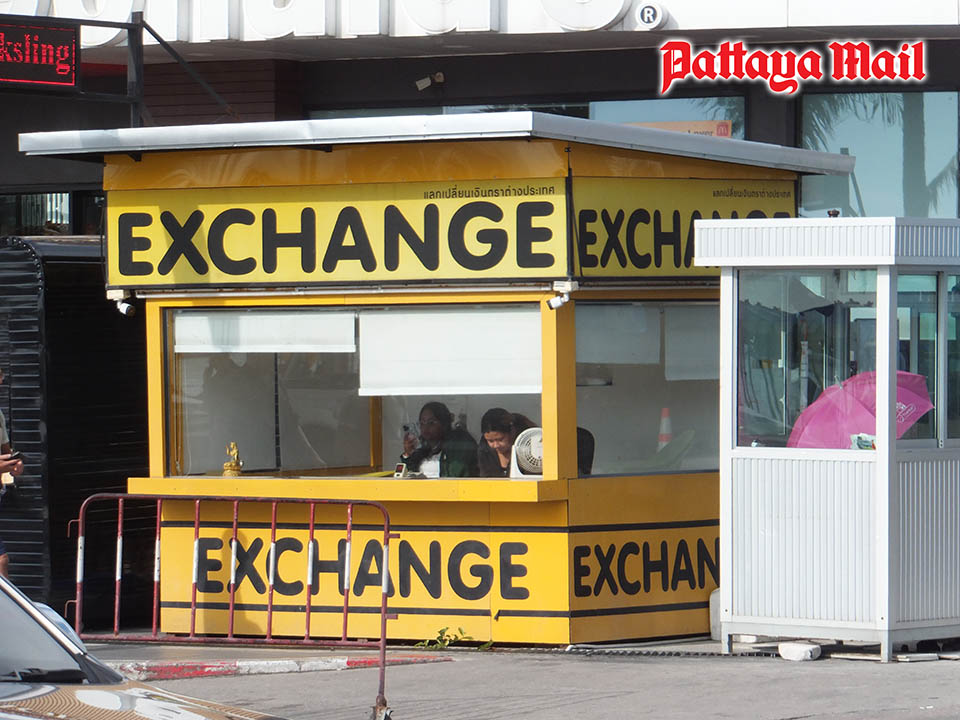Thai baht must weaken, or Pattaya faces its worst low season in over a decade
If the baht won’t break, Pattaya’s high season might—locals call for economic relief. (Photo – Pattaya Beach Road)
PATTAYA, Thailand – As Pattaya’s tourism sector braces for the traditionally slow rainy season, many long-term visitors and local business owners are warning: if the Thai baht stays this strong, the upcoming months could be catastrophic for the city’s economy.
On the morning of May 29, the Thai baht opened at 32.81 per U.S. dollar, weakening from the previous close of 32.60. The movement, described by analysts as “sideways up,” comes amid strengthening momentum for the U.S. dollar, supported by hawkish tones from the Federal Reserve and rebounding U.S. bond yields.
While the slight depreciation offers temporary relief, it’s not enough, say Pattaya stakeholders. A stronger dollar typically supports inbound tourism by making Thai travel and spending cheaper for foreign visitors. But if the baht remains firm—failing to drop beyond the 33.00 resistance level—Thailand risks pricing itself out of competitiveness, especially against regional rivals like Vietnam, Indonesia, and the Philippines.
“The warning signs are everywhere,” said a resort operator near Jomtien Beach. “Room bookings for July and August are way down. People are hesitant to spend. The baht needs to weaken more, or we’ll see the worst low season Pattaya has had in over a decade.”
Analysts currently expect the baht to trade between 32.65–32.95 over the next 24 hours, but much depends on a variety of external factors: U.S. economic data releases, commentary from Fed officials, Japan’s inflation and retail figures, and geopolitical tensions in the Middle East and Eastern Europe. Oil prices and gold trends are also in play—gold’s recent drop toward the $3,250/oz support zone has further pushed the baht to test resistance levels.
Even with modest depreciation, the dollar’s strength and foreign investor behavior—including seasonal dividend payouts and short-dollar unwinding—will determine if the baht moves significantly in the months ahead.
“Tourism needs more than just PR campaigns and beach cleanups right now,” said one local bar owner on Walking Street. “We need currency policy to help, not hurt. Otherwise, we’ll be repainting a sinking ship.”
If Thai policymakers don’t act—or if the global markets don’t shift—the result may be a perfect storm: low tourist numbers, struggling businesses, and a confidence crisis that no amount of promotional fireworks can distract from.



